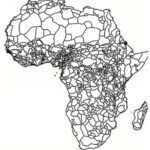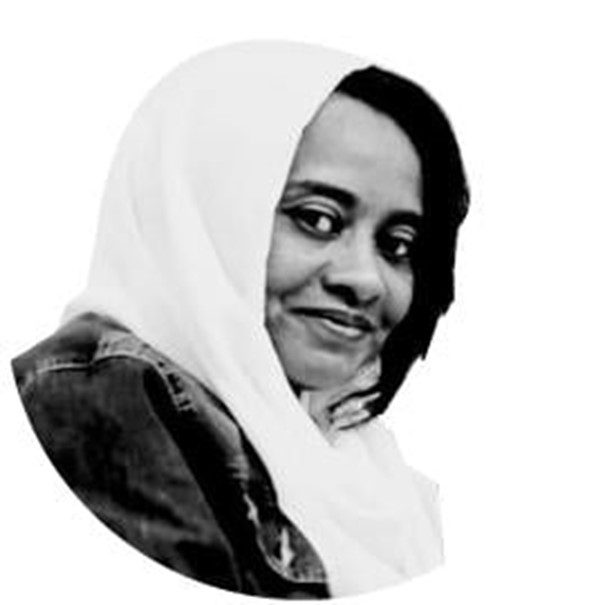by Hawa Rahma
You cannot become a war correspondent overnight. That’s a reality I’ve been wrestling with for the past 10 months of bitter fighting in Sudan – a conflict that I am personally caught up in, where I’m no longer just a journalist and impartial witness, but a victim as well.
War correspondents have training and protective gear. They have sympathetic editors and a distance from the story. I don’t have any of those defences. I have, instead, a tormented conscience. Unable anymore to do my job as an independent reporter, it still nags at me constantly.
Since the first shots were fired in April 2023 between the army and rival paramilitary Rapid Support Forces (RSF) battling for power in the capital, Khartoum, all Sudanese have been caught up in the chaos and ruthlessness of this war.
I haven’t taken a single photo nor written a single article – the risks are now too high. Voice a contrary opinion, or make a wrong move in front of these soldiers, and you can wind up with a bullet in your head.
I’ve witnessed our neighbour’s house destroyed by a rocket, their 17-year-old daughter killed. I’ve seen RSF soldiers attacking civilians, shooting and looting at will. And then there are the dead bodies – lying out on the streets for weeks – that nobody has come to claim and bury.
Ordinarily, my instinct would have been to pull out my camera and notebook and document it all. But these are not ordinary times: I haven’t taken a single photo nor written a single article – the risks are now too high. Voice a contrary opinion, or make a wrong move in front of these soldiers, and you can wind up with a bullet in your head.
So instead of work, my priority has become my family: to keep them safe, to provide for them, to get us through this – and it has been psychologically exhausting.
The war on independent journalism
Not only have journalists been robbed of their dignity and security, we have also been stripped of our work. Independent newspapers, websites, TV broadcasting stations, and radio programmes have been shut down. The only working media is controlled by either the army or the RSF, and both sides circulate lists of reporters they accuse of “betraying” the country.
International conventions guaranteeing the safety of journalists do not apply here. In this war, the free press and freedom of expression are also targets. The goal is to suppress the written word, smash the cameras, and block accountability and principle.
As we approach one year since this devastating conflict began, the world knows next-to-nothing about the full extent of the atrocities that are committed daily. Nothing is worse than seeing how truth has been suspended, like a patient sedated indefinitely.
The media blackout is made complete by the number of journalists that have fled Khartoum and other conflict zones. To stay and work is to risk the fate of colleagues that have been beaten, tortured, and imprisoned.
That’s why so many of us have chosen self-exile, joining the more than 1.6 million Sudanese now living abroad. To be honest, If I could get that chance to leave with my family, it’s what I would do as well.
‘A conflict that’s challenged all taboos’
We are held hostage, surrounded by the stench of death, under the threat of a meaningless demise.
I’ve been living out the war with my family in east Khartoum, where you can’t escape the sound of outgoing artillery and the incoming shells; the buzz of aircraft overhead; the yells of children who now know to run for cover when it all gets too close.
But I can’t write about any of it – I am no longer a voice for my people.
This powerlessness to do my job also means a loss of livelihood. Like other “ex”-journalists trying to make ends meet, I’ve been forced to roam the streets, peddling goods for sale to provide for my family. A well-written story or deeply-researched exposé is not what gets you paid anymore.
As we approach one year since this devastating conflict began, the world knows next-to-nothing about the full extent of the atrocities that are committed daily. Nothing is worse than seeing how truth has been suspended, like a patient sedated indefinitely.
Everybody has become impoverished. Young men, fearing ransom-related kidnapping or arrest, are increasingly choosing to stay indoors. The burden of supporting families therefore falls on women and children, even though – especially in RSF-controlled areas – they risk abduction and sexual violence.
Those civilians that still have formal sector jobs have not been paid in months. People lucky enough to have relatives abroad, who can send money home, have to contend with blackouts and internet outages that delays access to the digital cash when it arrives in their accounts.
Everything is so expensive. People struggle to afford even the staples: lentils, flour, and rice. In some places, like Khartoum’s embattled twin city of Omdurman, it can be too dangerous to go to the market for days on end, deepening everyone’s hunger and desperation.
Healthcare has also collapsed. The closest city with functioning hospitals was Wad Madani, south of Khartoum. But not only is getting there by road dangerous, the RSF is now in control, and no one knows how long those hospitals will stay open.
My inability to cover this conflict has left me silent and tearful. This is not the first civil war Sudan has experienced, but it is the worst. It’s a conflict that has challenged all taboos, where everyone stands to lose – and yet we still have no idea when it may end.
Without that prospect, a stream of existential questions daily fills my thoughts: Will I survive? Will I emerge unscathed? If I am killed, will I be buried, or will my body be left on the streets for the dogs to eat?
This story was firt published by the Humanitarian: https://www.thenewhumanitarian.org/opinion/first-person/2024/02/20/sudan-war-sudanese-journalist-describes-horror-she-cannot-cover

